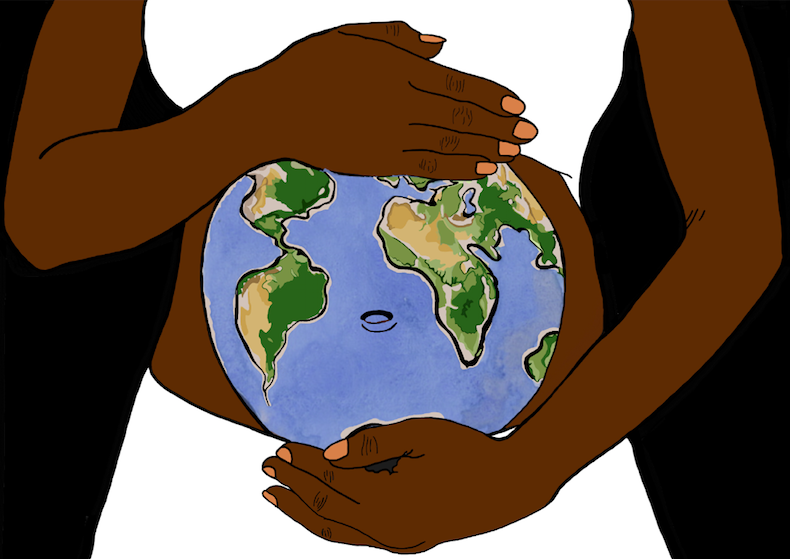Recent weeks have seen a major victory for environmentalists and activists across the country, as the construction of three major fossil fuel pipelines came to a halt. For many Americans, this news came unexpectedly, as much of the public discussion about these controversial pipelines had been completely forgotten in the wake of other recent crises.
Adverse Birth Outcomes: Climate Change Disproportionately Affects Health of Black Mothers
The interconnectedness of climate change and systemic racism begins early, with the pregnancy of a mother and the birth of a child. A review published in the Journal of the American Medical Association on June 18 found evidence that negative health effects caused by climate change start before birth.
Weekly Climate News
Updates for July 20
Frozen ground in the Arctic is thawing, harming Indigenous people’s hunting livelihoods as well as destabilizing buildings and roads.
The third EU country to do so, Portugal announced closure of national coal plants, driven to this decision in response to rising carbon costs and competition from clean energy companies.
As a result of COVID-19, once manicured green spaces in cities across the world have been left to be rewilded with native flowers and grasses which have been attracting more diverse ecosystems of insects, birds and wildlife.
Zanzibar in East Africa, a global hotspot for seaweed production, is initiating a new program for sustainable seaweed production.
Joe Biden revealed a $2 trillion climate plan.
As methane emissions have reached a global high, Burger King will be treating cows to a new feed that includes lemongrass as part of an experiment on reducing the amount of methane cows burp into the atmosphere.
Trump overturns key environmental laws which will speed up approval for projects like pipelines and highways, which could negatively impact low-income and minority communities.
Read up on the links between racism and the environment with this resource list from The New York Times.
Read up on the disproportionate effects of the climate crisis on Indigenous peoples and people of color with this article from Vice: The Environmental Movement Needs to Reckon with Its Racist History
Read up on the factors that make communities of color more susceptible to climate disasters with this article from Grist: Why Racial Justice is Climate Justice
Read up on the intersectionality between defunding the police and the environmental movement with this article from Vice: Why ‘Defunding the Police’ Is Also an Environmental Issue
Read up on the challenges racism adds to climate activism and work with this article from The Washington Post: Racism Derails Our Efforts to Save the Planet
Calls to Reinvest in Marginalized Communities: The Green New Deal and Defunding the Police
Climate Change as a “Threat Multiplier”: Environmental Costs of the US Military Threaten Global Security
Security in the United States is currently a topic of discussion, centering around possibilities of reevaluating public safety, as brought up by racial justice protests and global security, as tested by the COVID-19 crisis. Alongside these systems is another operative institution meant to ensure protection to Americans, which comes at a steeper cost to the preservation and safety of our world than many realize.
COVID-19 Unequally Impacts Communities of Color Across the Us
The impact of COVID-19 has been felt across the world, but it has not been felt equally. According to the ADL article “How Systemic Racism Impacts Coronavirus Racial Disparities,” communities of color in the United States are particularly hard-hit by the pandemic due to the country's structural racism. Structural racism is grounded in the foundation of white supremacy, shown through its presence in laws and institutions.
How COVID-19 Has Impacted the Environment
The coronavirus pandemic has affected our environment, producing positive outcomes as well as changes that present further challenges to the preservation of our natural world. Limited travel and the slowing of economic activity have led to a reduction of air pollution and greenhouse gas emissions on a global scale.




